For the fourth time, the Department for Social Inclusion of the Diaconia of the Reformed Church in Hungary (RCH) organised a professional development day with the Hungarian Reformed Church Aid (HRCA). The festive event, held in the church of the Miskolc-Belváros Reformed Parish and in the Bishop's Office of the Cistibiscan Church District, provided a networking opportunity to those working in the social services - Safe Start Homes, afterschool programming, Roma colleges for advanced studies - as well as in the Roma Mission and the Emerging Settlements Points, and also to learn about the work of the Reformed Institute for Unified Methodological Special Education.
In his opening message to the more than one hundred and twenty participants, Dániel Pásztor, Bishop of the Cistibiscan Church District, referred to the story of a man who had been ill for thirty-eight years and cried out to Jesus for help because there was no one to take him to the healing pool of Bethesda (John 5:1-9). The Ministerial Vice-President of the Synod expressed his gratitude for those who work in outreach: “You are God's outstretched arms because you especially experience the plight of those in need. We live in an unforgiving, cruel, performance-driven world where percentages dominate. You care about those who are left out of this competition. They need help to get to where God wants to see them," he said.
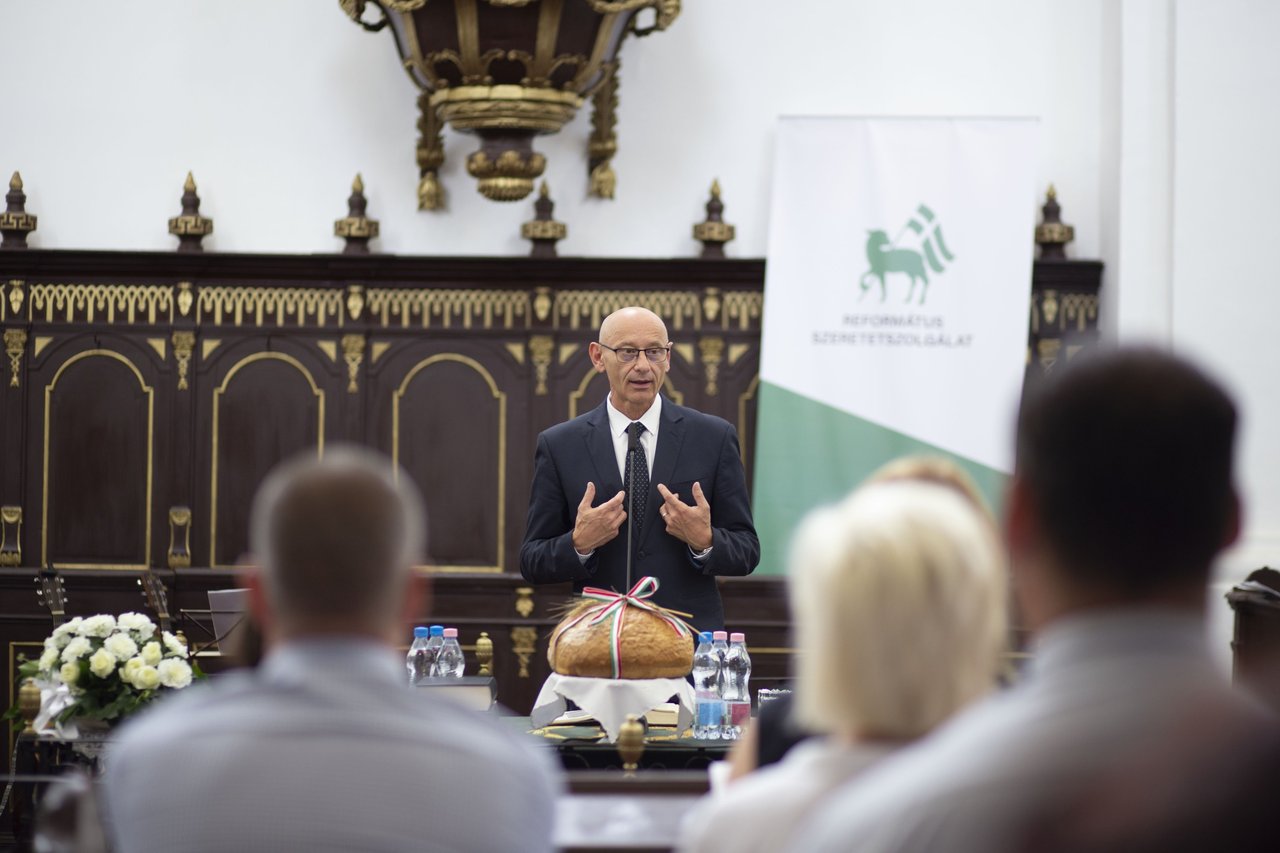
After an opening prayer interspersed with the songs of the Ker-Songs worship band, the hosts of the day, Tamás Eperjesi, the head of Department for Social Inclusion of the Diaconia of the RCH, and Lívia Böröcz, the sector manager of HRCA responsible for social inclusion, praised Dénes Gyirgyó from Esztergom, who received the Good Man Award from the László Káplár Memorial Cultural Foundation in early June. For years, Dénes Gyirgyó has been an active servant of the Roma Ministry, and since 2021 he has been the head of the afterschool centre supported by HEKS (Swiss Church Aid). In his testimony, our colleague, who is involved in missionary work and other essential services for the community within his locality and the surrounding area, emphasised that for him, educating children and providing them with opportunities is self-evident, and that he does not see them as gypsies or marked with disadvantages, but as diamonds in the rough.
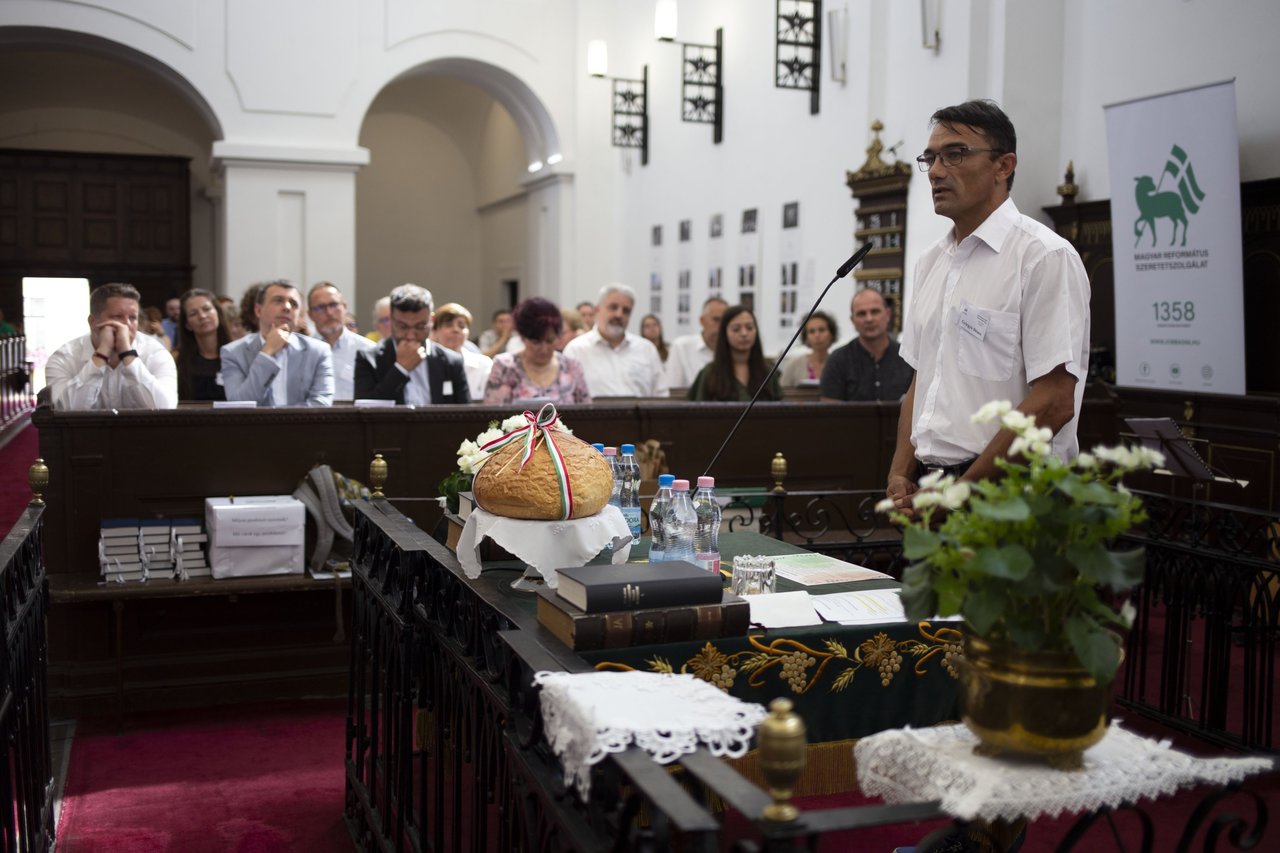
Lászlóné Radomszki, Deputy State Secretary for Social Inclusion of the Ministry of the Interior, personally welcomed the participants of the professional day. “‘Whoever calls on the name of the Lord will be saved,’ says the Old Testament daily verse from the Book of Joel, and I believe that we all do. It's a great joy to have been able to host this event," said pastor Attila Melegh, who has served in the Borsod county seat since August 2022.
The award ceremony for the Roma Ministry's artistic drawing competition "My Pastor," linked to the Year of the Pastoral Profession, was also held. Children from the integration and Roma ministry sites could compete in two age groups: in the 7-11 age group, the first place went to Maja Hajdu from Bagamér, the second place went to Dominik Máté Veres from Bagamér and the third place went to Ketrin Kovács from the HEKS afterschool centre in Ófehértó. Special prizes went to Janka Dancsó and János Dancsó from Ricse. In the 12-16 age group, Attila Juhász from Laki was the best, with second and third place (Nóra Blanka Gombos and Zsófia Zakor) and a special prize (Laura Orsós and Lívia Hajdu) going to Bagamér.
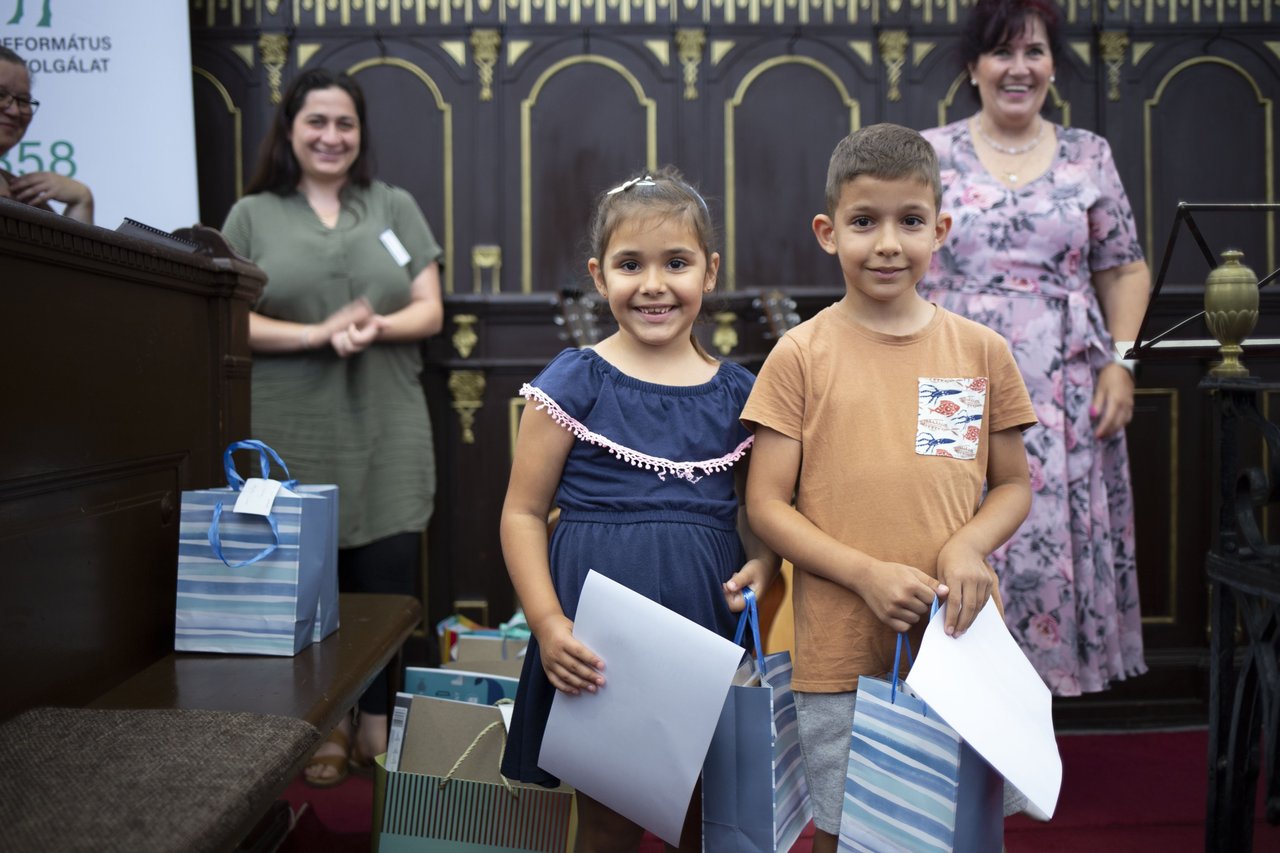
Márton Juhász, Executive Director of the HRCA, encouraged everyone, based on James 4, verse 8, that if we draw near to God, those we serve will draw near to Him.
The professional day focused on the relationship between Reformed education and the Reformed Institute for Unified Methodological Special Education (RIUMSE) and social inclusion. László Bruckner, Director General of the Educational Service of the RCH, introduced the topic and several key insights. The specialist plans to have all Reformed primary school graduates leaving the system by 2030 meet educational standards, he would like to make Roma vocational colleges available to secondary school students and to develop a complex system of institutional requirements in Sellye on a pilot basis in the near future. Bruckner assured the participants that the Educational Service of the RCH will provide resources for the development of faith education in schools.
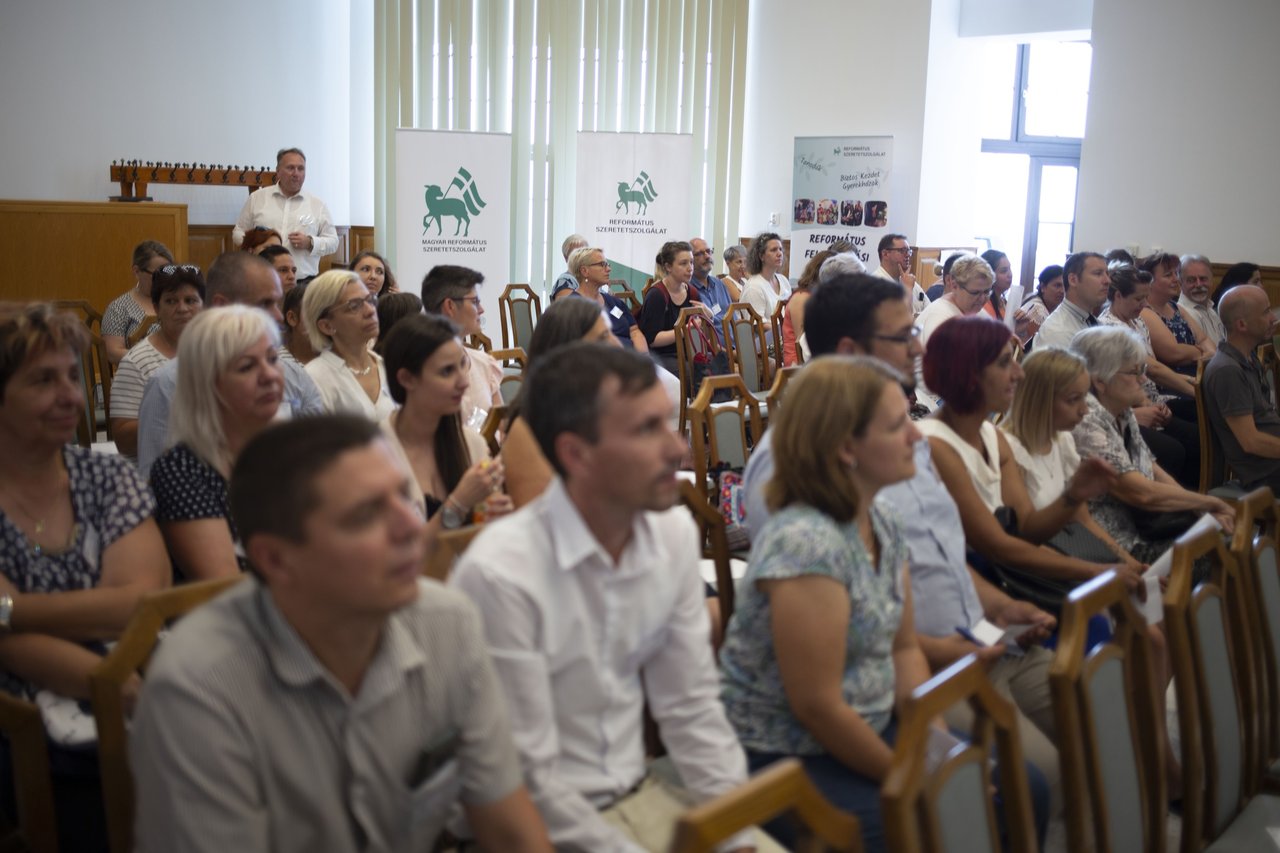
On behalf of the Institute, the newly appointed director Erika Siteri introduced the organisation and its links to the Reformed education system. Csaba Radványi, the deputy director, reported that a liaison officer would soon be working between the Institute and the social inclusion services to ensure a more effective service.
On behalf of the social inclusion services, two institutions presented to the participants, showing the areas of intervention where the special education institute could play a role. The first was the Fairy Garden Safe Start Home in Banréve, presented by Orsolya Iván-Csizi. The professional leader underlined how much is available in the institution to support early childhood development, from material conditions to professionals and a wide range of services.
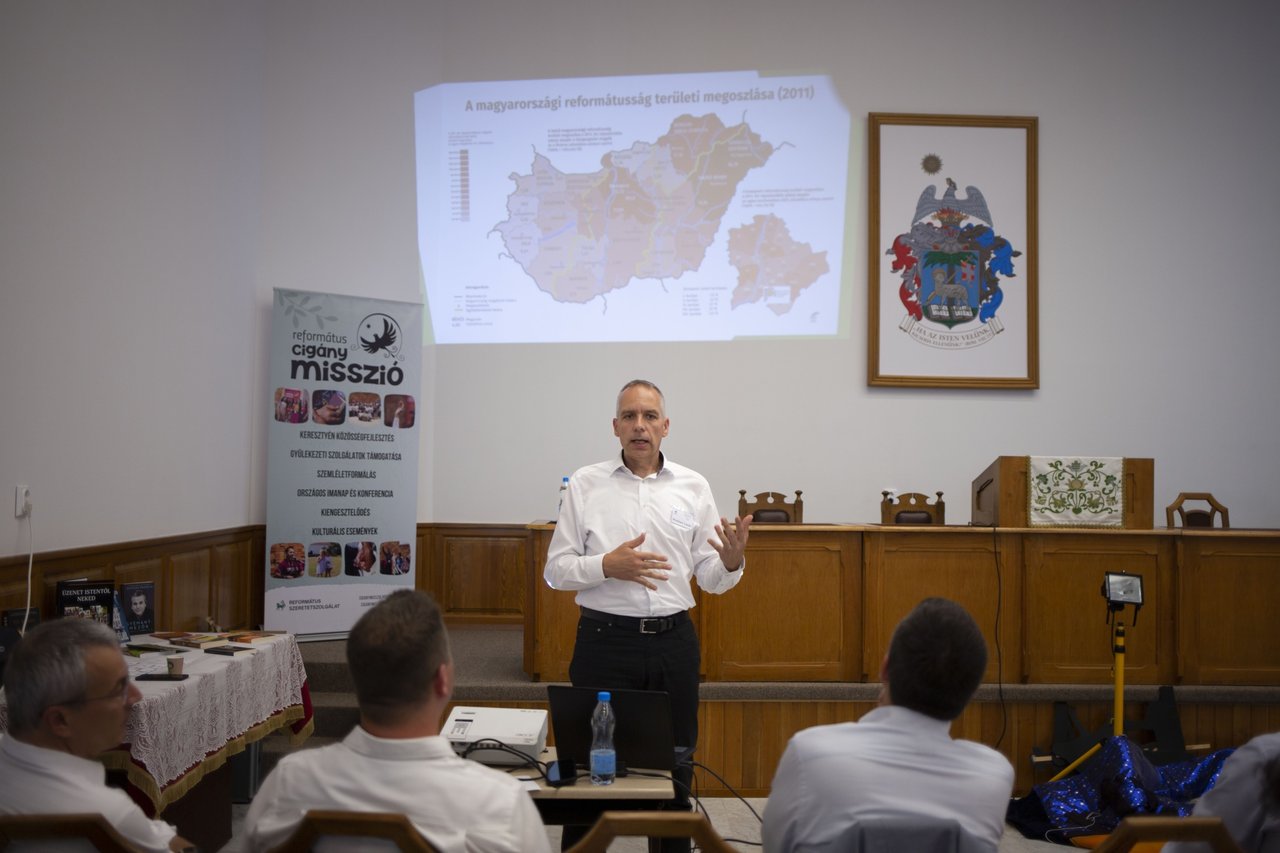
Vera Kézdy-Brózik, the professional manager, spoke about the afterschool centre in Piliscsaba, stressing that although they receive a lot of support to work effectively, they need thematic days (for example, on ADHD and autism), training, lectures, screening, and help in setting competency limits.
The programme of the professional day was enriched by a puppet show at the Emerging Settlements Point of the HRCA in Nagyecsed, which gave an insight into how accessible Bible stories can help to develop the values of disadvantaged children.
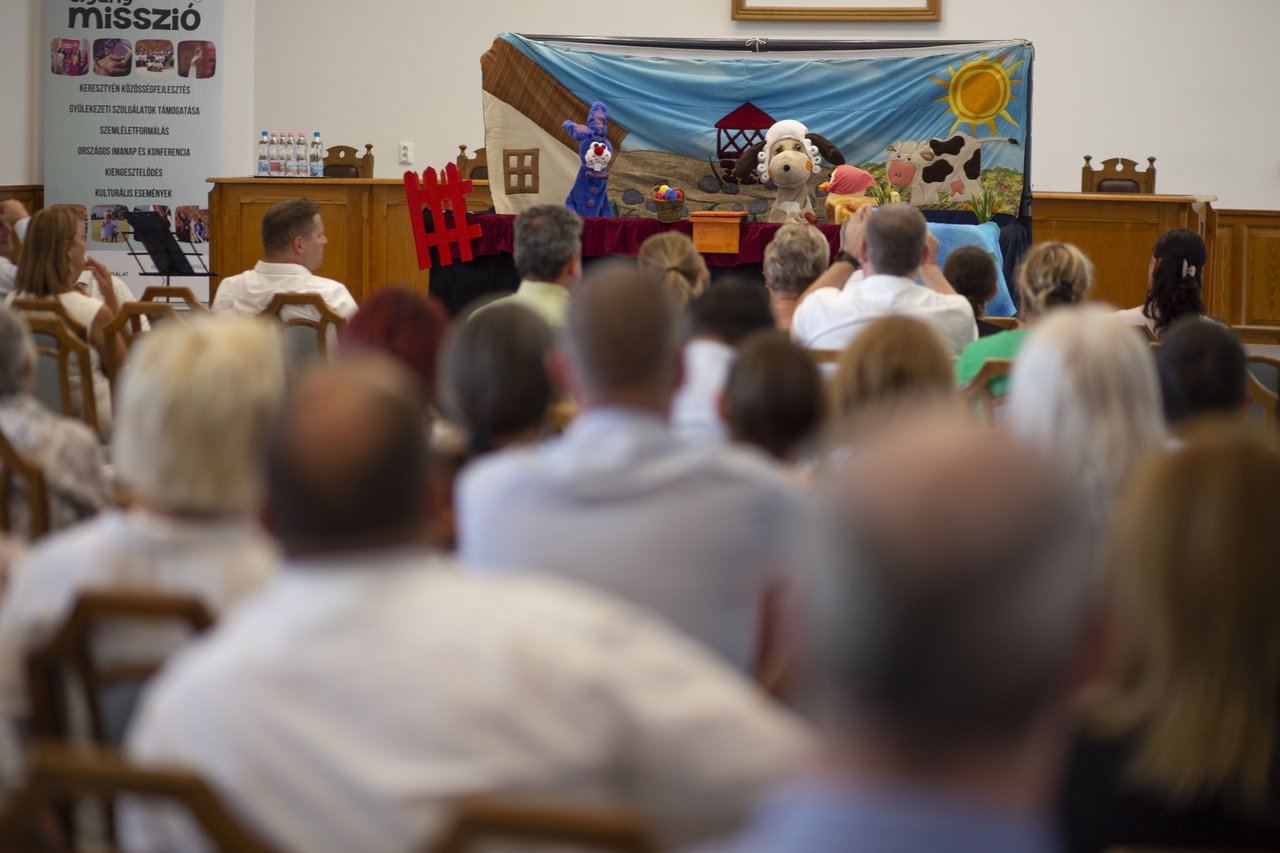
After lunch, participants formed small groups to discuss the source of strength for ministry, and each group shared messages of encouragement to others.
Károly Czibere, Director General of the Diaconia of the RCH, in his presentation entitled "Reformed Ways of Inclusion," stressed that in our polarising and individualising society, the church is less and less able to influence people, which makes it more difficult to compensate for disadvantages. But, according to the Director General, we must not succumb to this new reality of the Church.
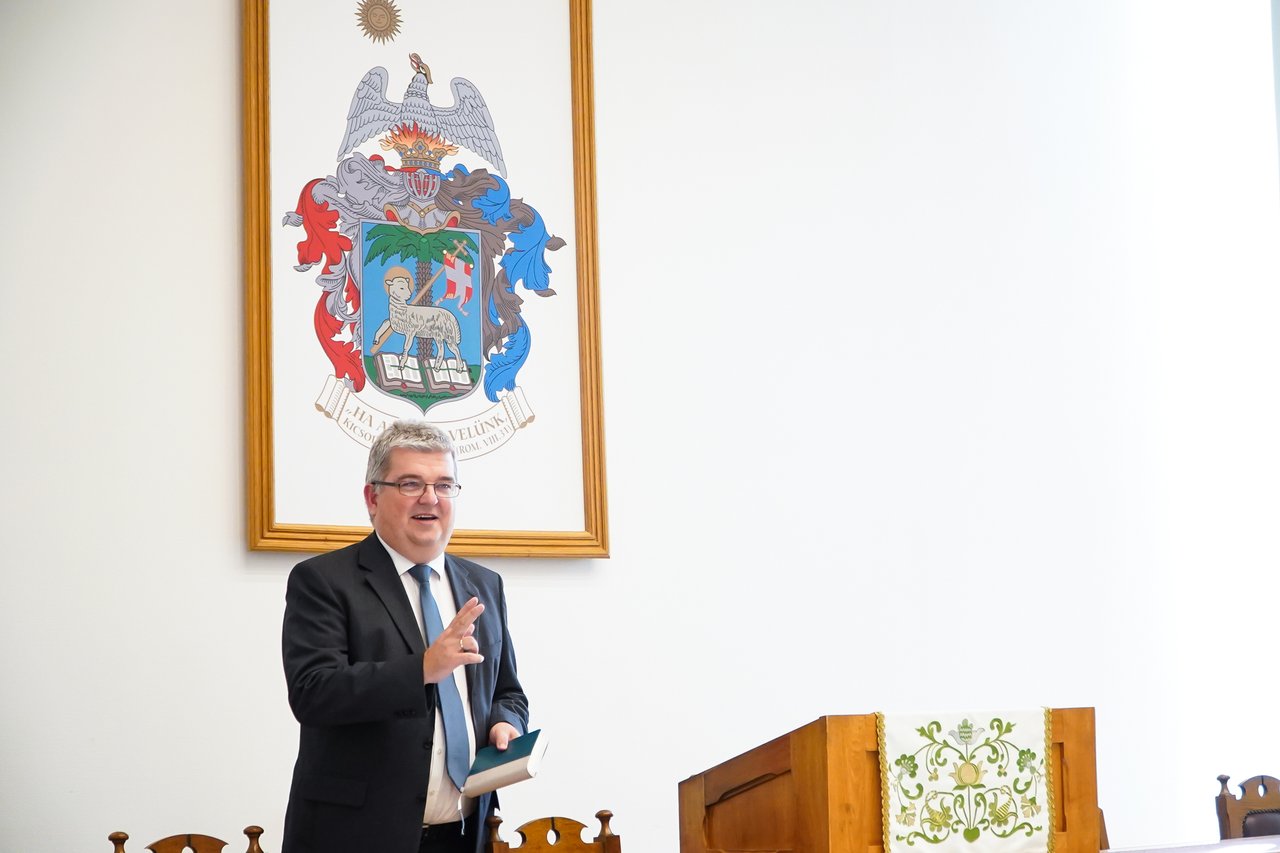
“This is a time when authentic and effective service is valued, and it is our job to show that to everyone," he said. Czibere added, “God, who identifies himself with those who suffer, wants to see his justice in the world, so it is our duty to help those in need. In doing so, we are building the kingdom of God and even anticipating what it will be like in heaven.”
A presentation of the prizes of the "Be a Creationist!" competition followed the presentation, and included the participation of Károly Czibere, Zoltán Váradi (head of the Natural History Museum in Debrecen), Beáta Somogyi, former and Ágnes Ráczné Ördögh, current national professional coordinator of the afterschool programming. In the age group 1st-4th grade, the team of the Hódos, Nagyecsed, and Komád afterschool centres qualified for the final on September 9th in the Nyíregyháza Zoo Park.
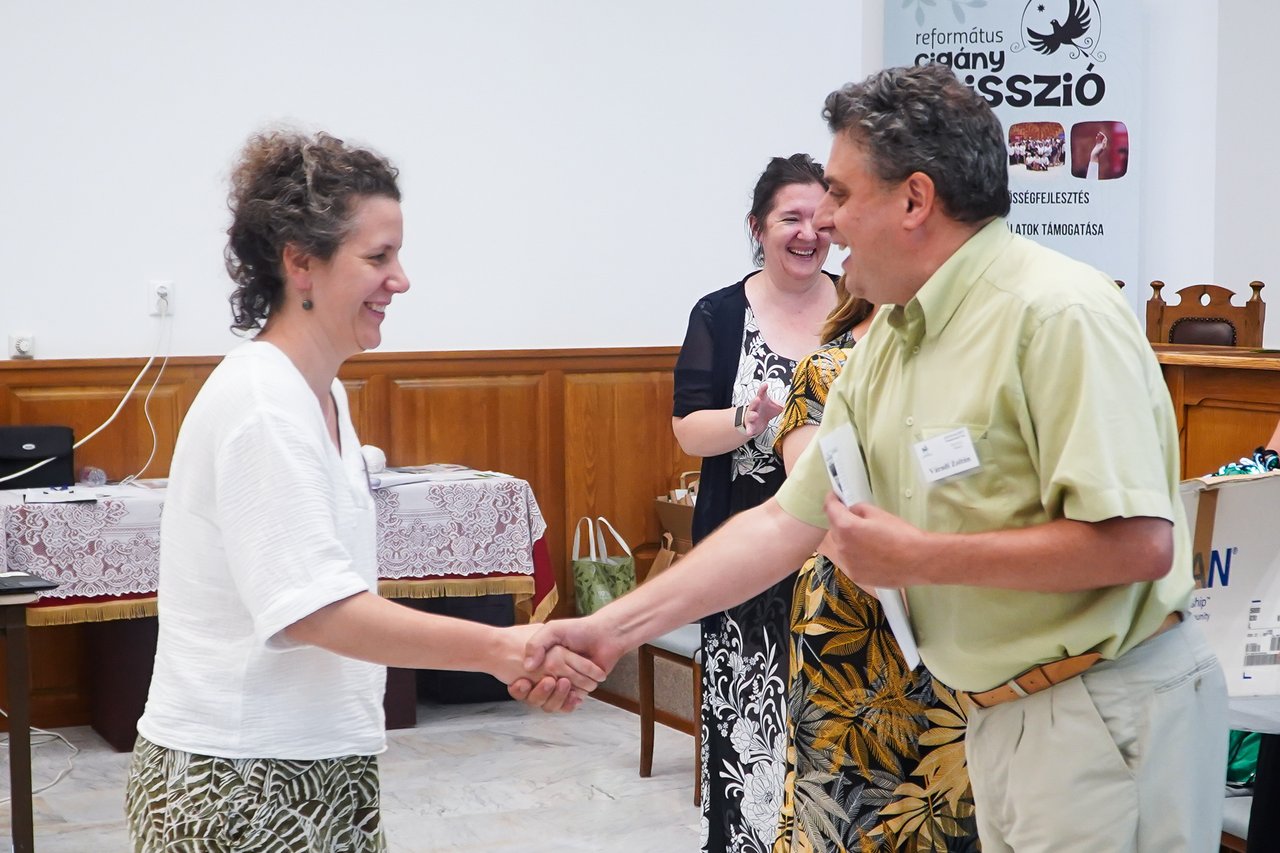
In the 5-8th grade age group, the best teams were from Hódos, Kecskemét, and Pilisvörösvár, who will compete for the places in Bódvaszilas on September 16th-17th. Special prizes were awarded to the teams from Sellye and Piliscsaba - the professional leaders and staff of the institutions presented all the prizes.
After the award ceremony, Zoltán Váradi gave a short presentation on the Natural History Museum and some playful exercises for the participants. Following this, the hosts of the day led an interactive feedback session with menti.com - each participant could type three words to the question "What am I taking home?” and the result was a colourful word cloud with many heartwarming phrases.
The closing sermon of the Reformed Day of Social Inclusion was given by Szabina Sztojka, leader of the Roma Ministry, based on verses 10-17 of Luke 13. The story is about a woman with a stooped back for eighteen years, whom Jesus delivered from illness. “John Calvin wrote that diaconia is a ministry of empowerment. This is our work. To be raised up is to regain my dignity; pride in who I am, where I come from. God calls us to help uplift others; in doing so, we ourselves are uplifted. Let us not forget this!” said the pastor.
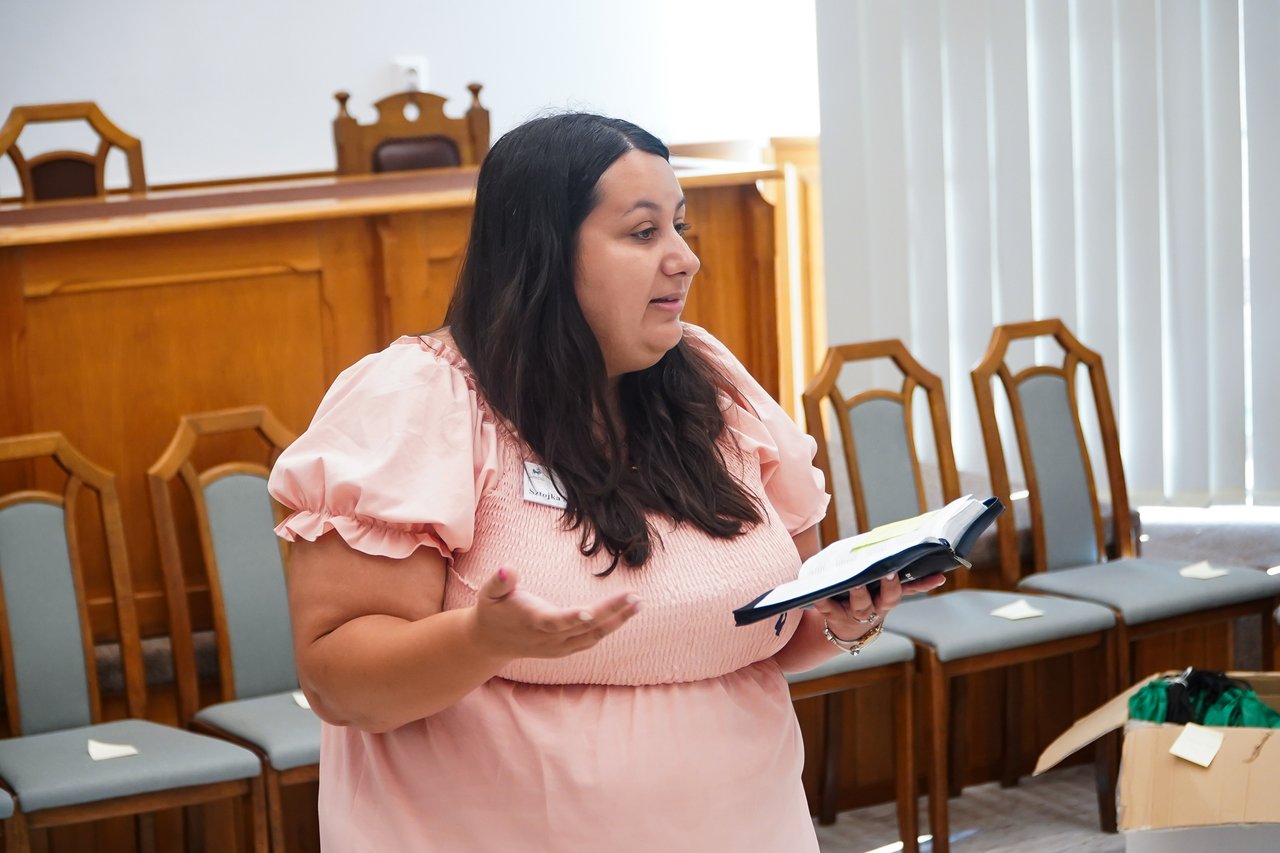
The Safe Start Homes, afterschool centres, Roma colleges for advanced studies, different areas of the Roma ministry, churches and schools implementing social inclusion projects under the umbrella of the Diaconia of the RCH, and the Emerging Settlements Points operated under the HRCA are the real leaven of our church. These programs show the way to turn towards our fellow human beings: with love, humility, looking at them with the eyes of Christ - seeing Christ in them.